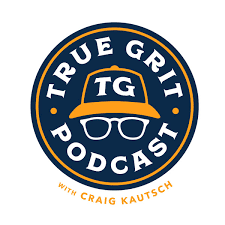Recently, I was talking to a friend who is a successful businessman. He mentioned that he had sold one business, and was looking at another venture to become involved in. Knowing that he was a very competent person, I asked him how he was going about it. Did he hire a consultant, do a web search, or what? He said, “Well, actually I have been very busy with this. I have been doing a lot!” Here are some of the things he was doing. He:
- Created an analysis of how much he was willing to invest in terms of money, time and energy, and what the geographic parameters were. For example, he didn’t want to move, so it had to be something that was local, or web-based, or that he could easily fly to, but not too often.
- Called several very successful friends and asked them if they were aware of any interesting opportunities.
- Did a web search on various industries and new businesses.
- Found an industry that seemed to have potential and that he thought he might enjoy.
- Went to their conventions and association meetings as a learner, and listened and asked a great deal of questions.
- Found some successful experts who were in that field, and met with them several times to go deeper.
- Took a hard look at the downsides, risks, and competition. Took a break from the research and got away from it so that he wouldn’t lose perspective and get too much of a myopic view of the opportunity.
- As it was a retail venture, he drove around and visited ongoing sites to see what he could learn in the moment. He actually found that his future competitors were willing to tell him lots of helpful information! People in the same industry often have affiliate relationships, with a lot in common.
- Went to the county offices and got a great deal of information that is public record, which helped him to further figure if this would work.Drove around some more and looked at potential sites for the business and how those particular locations would need what kind of marketing, advertising and services that would be a good fit.
- Did projections on where the industry would be in 3,5 and 10 years, and decided on his plans of when to sell the business.
There were many more tasks that he did. When I asked him how long he had been working on this project, it was over a year. It did not take up all his time, but he was always, almost every day, doing something about it. And at this point, he had green-lighted the concept, and had started the new company.
There is a lot to learn from this man’s style. He did not rush into a deal because it had a lot of heat, and was the flavor of the month. Instead, he scoured all aspects of the industry and that particular opportunity. He did his homework. Here are some ways for you to use this approach in your own work and ministry. This doesn’t have to be about going into a new field, or starting a new project. It could also be concerned with unpacking how your own job, department, company, church or ministry is performing, and changes that could improve things.
Realize that the person who cares the most needs to do the most work. That is, be the bottom line. You are the person who is most invested in the research question, so budget your time and energy to make sure that you are taking the initiative to keep driving things. This doesn’t mean that you have to actually do all the elbow grease. You may be assigning people to various parts of the task, but you are making the calls and emails to keep getting updates.
Too much information is better than too little. Spend the time to get the facts, and even facts you may not think you need. You will be surprised how valuable it may be at a meeting when someone says, “What about the demographics of the neighborhood” and you have a file that spits it out that you didn’t think was that helpful at the time. This research phase will be the most intensive fact-finding period of the whole project, so get it all done now, rather than having to ramp up later. There certainly is such a thing as too much information, but lean toward that direction of “more better than less.”
Be willing to walk away. It is a reality that most research projects about questions and new opportunities don’t end up as something people actually end up doing. That is the nature of the beast. That is why you are analyzing and fact-finding. Be aware of the tendency that some people have to become so excited and attached to a new idea that they fill in the blank spaces with positive interpretations of negative realities. They end up investing in something that will not pay off, because they were not willing to walk away.
Listen to the right people. By this I mean that you want to pay attention to people who know about your research and interest, who are both neutral about the direction, but positive about you. That is, their primary concern is to protect your welfare. They are not invested in going for the idea, or against it. So you need to make these people those you listen to the most.
Be diligent and patient. Success comes from spending time showing up, and doing the right thing, sometimes over and over again, over time. This isn’t a miracle, and it is often tiresome, but it works. It is also the mark of an adult. Some leaders have character issues that cause them to give up quickly if the ducks don’t fall into a row pretty soon. And some get frustrated and impatient with the due diligence process. While projects do need to have an end and a deadline, make time your ally, not your enemy.
There really is a miracle here, however. It is the hard work miracle. You do the diligence and stay at it. Look for opportunities, clarity and wisdom. That results in miraculous outcomes. Get involved, do the homework, and see what outcomes occur from your efforts.





